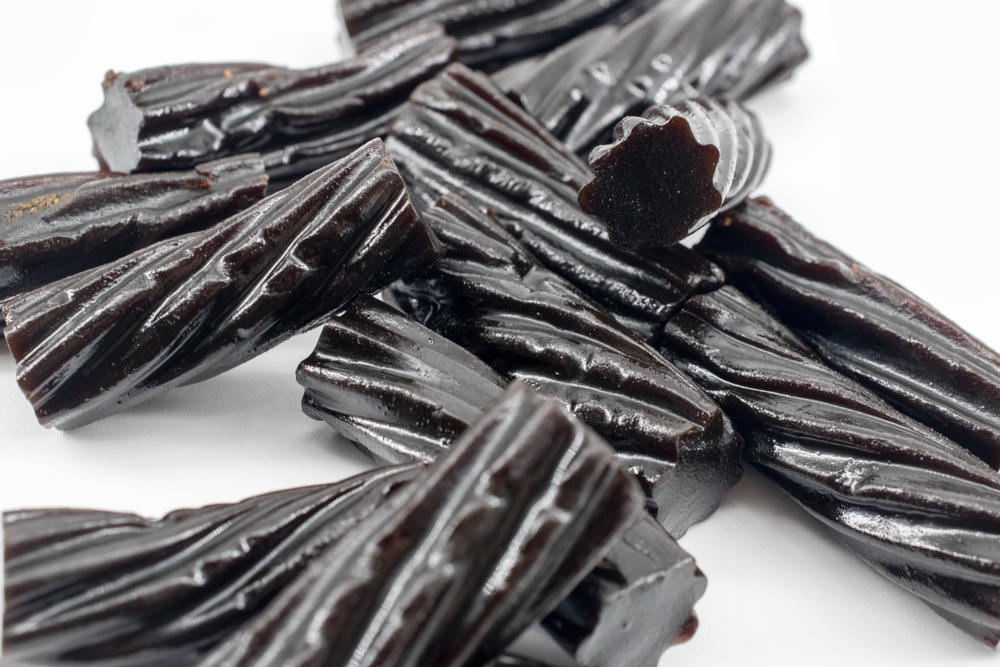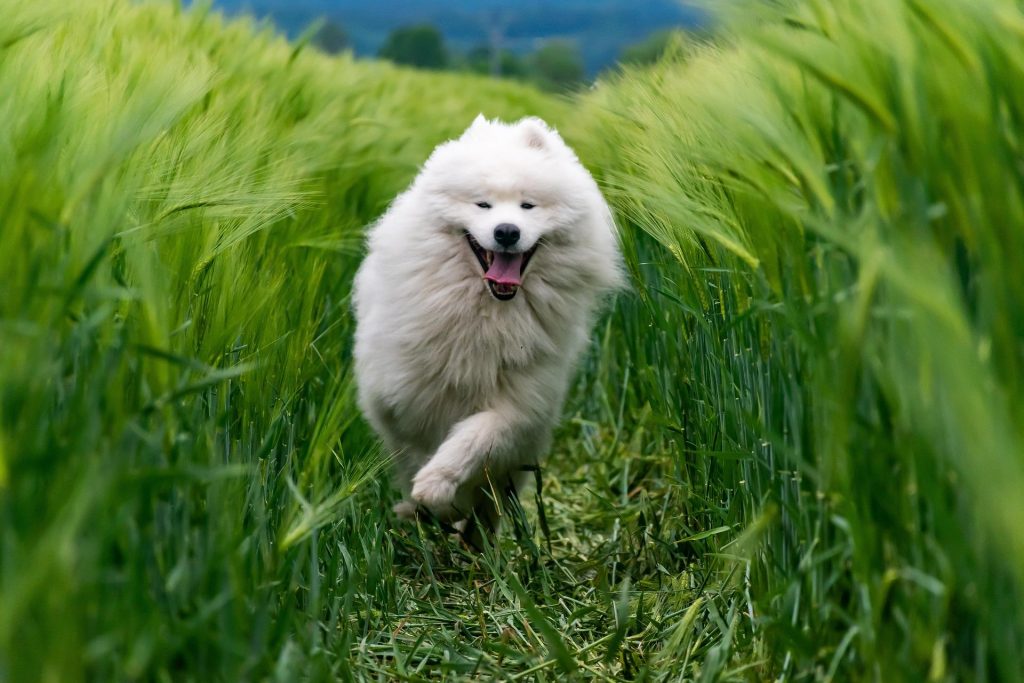The post Can Dogs Eat Licorice? Vet-Verified Nutrition Facts & Info by Ashley Bates appeared first on Dogster. Copying over entire articles infringes on copyright laws. You may not be aware of it, but all of these articles were assigned, contracted and paid for, so they aren’t considered public domain. However, we appreciate that you like the article and would love it if you continued sharing just the first paragraph of an article, then linking out to the rest of the piece on Dogster.com.
Click to Skip Ahead
Our pets can eat all sorts of goodies that we can prepare from the comfort of our own kitchens. However, when it comes to sweets, it isn’t always the best idea to share with our four-legged friends.
Licorice is not healthy for dogs and shouldn’t be given as a regular snack. Licorice root itself is not toxic, however, side effects can occur with prolonged exposure.

Why Dogs Shouldn’t Eat Licorice
Some licorice may be more harmful than others, depending on the ingredients. For example, licorice that contains the artificial sweetener xylitol is toxic for dogs. Typically, licorice will contain unhealthy ingredients rather than anything toxic. Twizzlers Twists Black Licorice Candy contains corn syrup, enriched wheat flour, sugar, cornstarch, licorice extract, palm oil, salt, mineral oil, lecithin, and colors and flavors. Red licorice typically won’t have any licorice extract. While these ingredients don’t provide anything of benefit to dogs and may hurt in the long run they aren’t toxic in moderation. The high sugar content means that consuming licorice will give your dog extra calories which leads to weight gain and other problems in time.
Licorice root is used in veterinary herbal medicine at appropriate doses. It is not toxic for dogs but, due to the effects seen in people, large doses over time are thought to lead to electrolyte imbalances and high blood pressure due to the glycyrrhizin found in it. 1 People with high blood pressure are advised to avoid licorice, so we could apply the same logic to dogs. If they have heart, liver, or kidney disease they may be more susceptible to issues. Keeping in mind that dogs are smaller than people, so less licorice might be needed to produce a harmful effect. Licorice root is not recommended during pregnancy as it can cause premature birth and health problems in babies. To be on the safe side, it’s best to follow this precaution in dogs.
Some licorice also doesn’t contain any licorice extract but anise oil instead, this is also not toxic to dogs in small amounts.


Risks of Feeding Your Dog Licorice Candy
While there are zero benefits to feeding your dog licorice candy, there certainly are a handful of downfalls. Let’s look at each one.
High Blood Pressure
Since licorice root contains the glycyrrhizic compound, it makes blood pressure rise. While that might not be as problematic for a healthy adult, it can certainly complicate matters especially if your dog already has a heart issue or other health concerns.
1. Sugar
Sugar in excess is definitely bad news for any pup. To be honest, sugar is bad news for any person! Your dog already has all of the sugars they require in their bowl of daily kibble. So you don’t have to worry about ever adding anything in.
Even some dog treats are a little high in sugar and are best in moderation. Too much excess sugar can lead to significant health issues over time, especially if they are fed excess sugar regularly. Sugar can lead to health issues like obesity which increases the risk of joint problems, pancreatitis, diabetes, and cancer.

2. Harmful Sweetener
There is a chance that licorice could contain harmful sweeteners that could actually be detrimental to your dog’s health. One example is a substance called xylitol. Xylitol is a highly toxic artificial sweetener that is toxic even in relatively small amounts. It causes low blood sugar and liver damage, and it can kill dogs.
Unfortunately, it is used as an alternative sweetener in a lot of cases when it comes to candies, such as in sugar-free varieties, but it is definitely possible for licorice to contain xylitol. Always do a quick sweep of the ingredients if you ever plan on sharing any of your snacks with your pet.
3. Difficult Digestibility
Licorice is hard to digest. Your dog’s body is not used to these ingredients, and it will be difficult for their systems to break it down. If a dog eats licorice, it may cause nausea, vomiting, and diarrhea, even if it doesn’t cause toxicity.
4. Artificial Color
Licorice is going to have artificial color, regardless of whether it’s black or red. These are completely unnecessary in a dog’s diet and while they are not usually toxic some have been marked as potential carcinogens and allergens in animals. So, having your pet eat a bunch of artificial colors is really not the way to go!

What to Do If a Dog Eats Licorice
If your dog eats licorice, it is a good idea to reach out to your veterinarian for advice. They may ask you just to monitor your dog for any symptoms, or depending on how much your dog ate or if they have any other health conditions, your veterinarian may want you to bring your dog in for monitoring and treatment.

 Conclusion
Conclusion
So now you understand that licorice candy is an unsuitable snack for your pooch. If they scooped up a piece off the floor, it’s unlikely to do any real damage, but it is still not healthy for them in any case.
If you have any questions as to how much your dog ate or if your pup has some type of health condition relating to blood pressure, you need to ask your vet for advice. This article is not a substitute for veterinary guidance so always make sure to call your vet with any questions or concerns you have.
Featured Image Credit: Olinda, Shutterstock
The post Can Dogs Eat Licorice? Vet-Verified Nutrition Facts & Info by Ashley Bates appeared first on Dogster. Copying over entire articles infringes on copyright laws. You may not be aware of it, but all of these articles were assigned, contracted and paid for, so they aren’t considered public domain. However, we appreciate that you like the article and would love it if you continued sharing just the first paragraph of an article, then linking out to the rest of the piece on Dogster.com.

